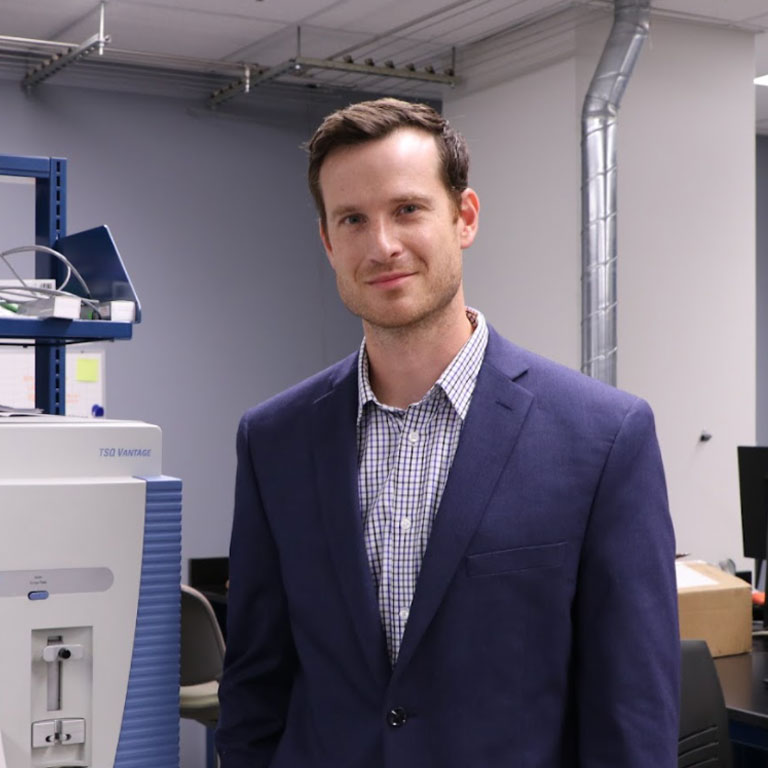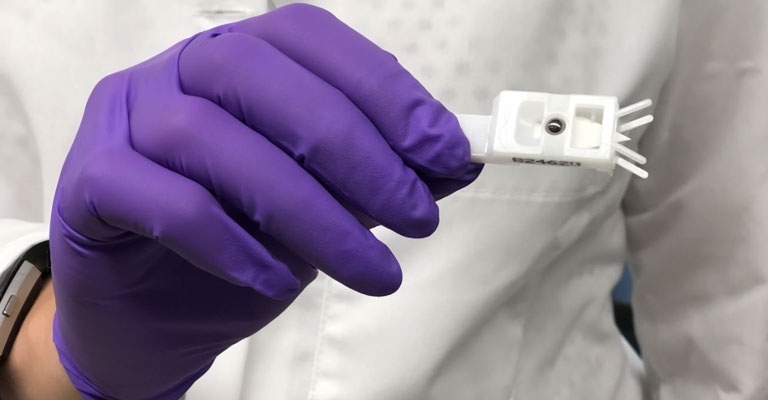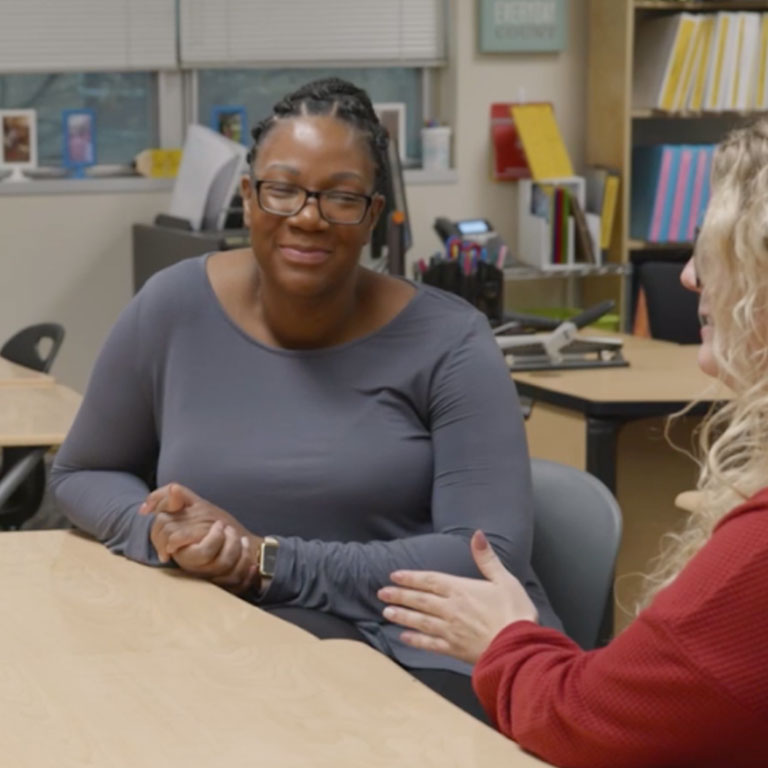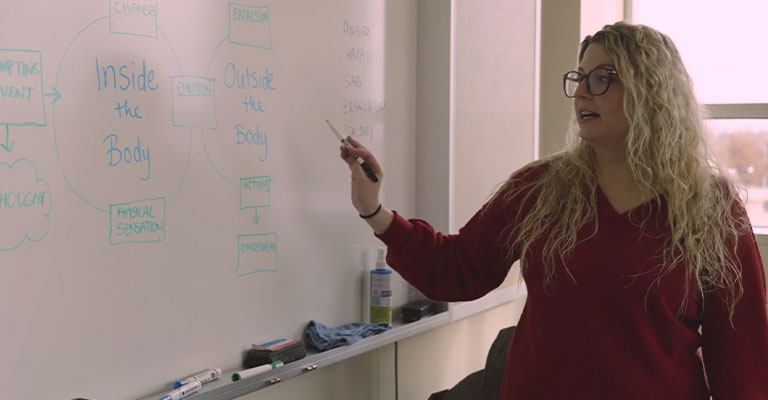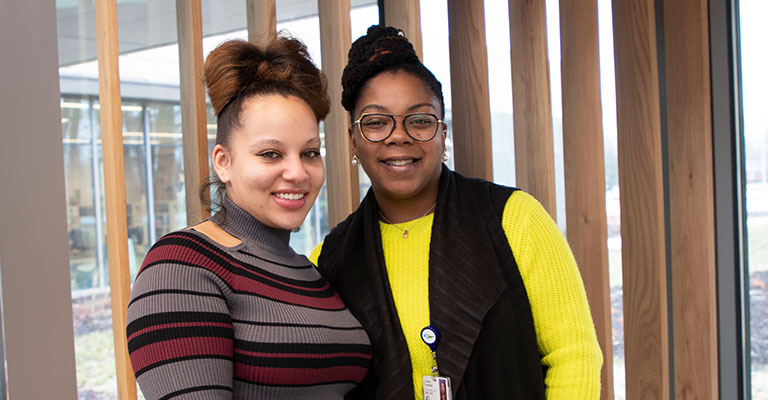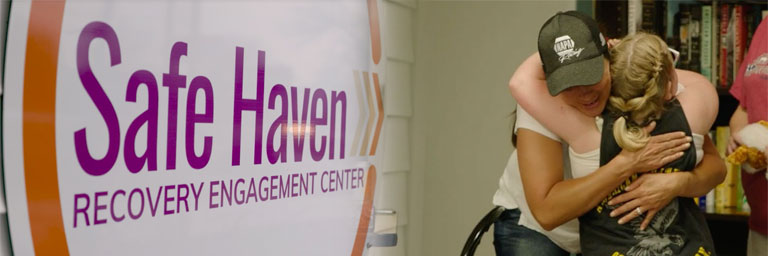IU is fighting to dismantle one of the biggest barriers to substance use disorder treatment: stigma. More than 850 nurses and community members have enrolled in two free online courses through the university. The first course, "In This Together: Community Conversations to Reduce Stigma of Substance Use Disorder," fosters individual reflection, community discussion, and education around substance use issues and stigma. The second course, "Substance Use Disorders: An Introduction for Nurses and Healthcare Professionals," supports nurses in Indiana and throughout the country in increasing their understanding of best practices related to substance use disorder and addiction treatment.
Description of the video:
*Music Begins*
[Video: IU Grand Challenge Responding to the Addictions Crisis logo appears]
Ryan Russel Speaks in Voiceover: “I had, had nothing in my life grab me like opiates. Addiction crosses every”
[Video: Ryan and Shawna Russel sitting in church pews speaking to camera corresponding to voiceover.]
[Video: B-roll of Shawna, Ryan, and Reverend Charlo Burrell in a meeting with other group members. Ryan and Shawna sitting in church pews speaking to camera corresponding to voiceover. Close-up b-roll of Charlo.]
Ryan Russel Speaks in Voiceover: “Addiction crosses every socio-economic, racial class, ethnic line that you could ever imagine. No matter where you are in life or who you are in life, whatever it may be could grab you before you know it.”
Jessica Hawn Speaks in voiceover: “I struggled with a little bit of postpartum depression when my daughter was born. I was put on nerve pills. it didn't take very long and I was taking them more than what I was supposed to and then eventually stronger pain pills, stronger pain pills, which led to heroin. I didn't just wake up one morning and say, okay I'm gonna ruin the rest of my life today.”
[Video: Jessica sitting in home speaking to camera corresponding to voiceover. B-roll of Jessica doing dishes. Jessica sitting in home speaking to camera corresponding to voiceover. B-roll of Jessica looking out window then looks into camera.]
Josh Graves Speaks in Voiceover: “It hurts when you know what you've been through and people still call you worthless. You're just a junkie, you're better off dead. I know that I've done a lot of bad things, but it also kept me away from wanting to try to better myself.”
[Video: B-roll of Josh driving, walking into Safe Haven Recovery Management Center. Josh talking to camera corresponding to voice over. B-roll of Josh in his office on his computer at Safe Haven.]
Brea Perry Speaks in Voiceover: “Stigma is defined as a deeply discrediting attribute. And the process of stigmatization is a social one where people who have a particular condition are devalued. Stigma is a major barrier to treatment seeking there's the shame and the secrecy which causes people to not seek treatment when they need it.”
[Video: Brea speaking to camera corresponding to voiceover. B-roll of Josh meeting with someone at Safe Haven.]
Reverend Charlo Burrell Speaks in Voiceover: “I've been sober since May the 15th of 1998. I'm a licensed addiction counselor also. Society labels alcoholics or addicts as these voodoo types of people it's the stigma that goes along with it. When I became educated about it, it took away from me that I was a failure. It's not one person, not one, that I can meet that I don't believe that can have a chance.”
[Video: B-roll of Charlo in his office at the Pilgrim Missionary Baptist Church. B-roll of Charlo with others in a meeting in the church. Charlo sitting in church pews talking to camera corresponding to voiceover. B-roll of group members meeting in church.]
[Video: Indiana University logo fades in and then fades to black]
*Music ends*
The online courses are available to the public at no cost. They were developed by IU's Responding to the Addictions Crisis Grand Challenge and are made possible through a grant from the Commission for Higher Education of the State of Indiana, CARES Mental Health Programs.


